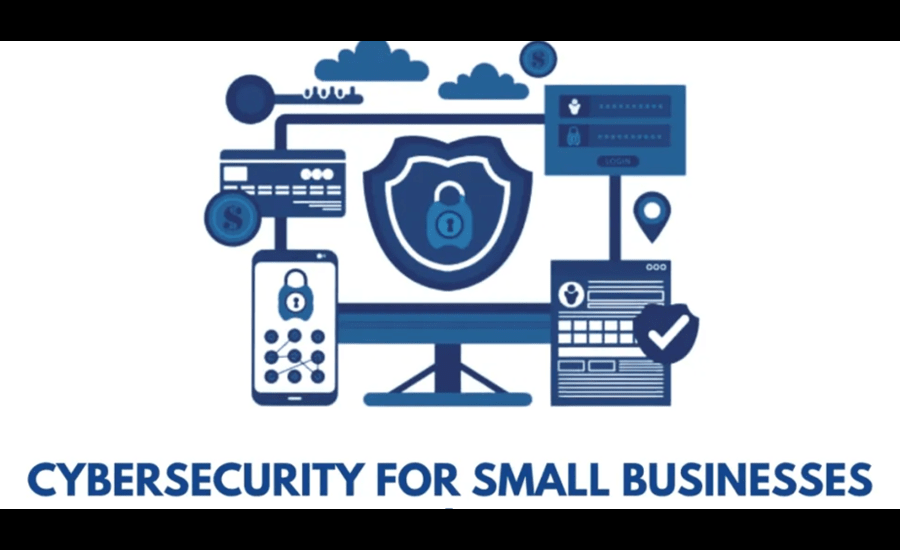Cybersecurity for Small Businesses: Key Strategies
In today’s digital age, cybersecurity is not just a concern for large corporations but also a critical issue for small businesses. Small businesses are increasingly becoming targets for cybercriminals due to their often-limited resources and less sophisticated security measures. As a small business owner, it’s essential to protect your company from cyber threats that could lead to data breaches, financial losses, and damage to your reputation. This article will explore key strategies that small businesses can use to enhance their cybersecurity such as Liteblue USPS Login
Understanding the Risks
Before diving into the strategies, it’s important to understand the types of cyber threats that small businesses face. Common threats include:
- Phishing Attacks: These involve fraudulent emails or messages that trick employees into revealing sensitive information, such as passwords or financial details.
- Ransomware: This is a type of malware that locks users out of their systems or data until a ransom is paid.
- Data Breaches: These occur when sensitive business or customer information is accessed or stolen by unauthorized individuals.
- Malware: Malicious software designed to harm or exploit any programmable device or network.
Knowing these risks can help you better prepare and implement the right security measures to protect your business.
Key Cybersecurity Strategies
Educate and Train Employees
Employees are often the first line of defense against cyber threats. However, they can also be the weakest link if they are not properly trained. Providing regular cybersecurity training for all employees is crucial. This training should cover topics such as how to recognize phishing emails, the importance of strong passwords, and the dangers of downloading unverified software or clicking on suspicious links.
Encourage employees to report any suspicious activity immediately, and create a culture where security is a shared responsibility. The more aware your employees are of potential threats, the less likely your business is to fall victim to a cyberattack.
Implement Strong Password Policies
Weak or easily guessable passwords are a common entry point for cybercriminals. To protect your business, implement strong password policies that require employees to use complex passwords. A strong password typically includes a mix of uppercase and lowercase letters, numbers, and special characters.
Encourage the use of password managers to help employees securely store and manage their passwords. Additionally, consider implementing two-factor authentication (2FA) for added security. 2FA requires users to provide two forms of identification before accessing an account, such as a password and a code sent to their mobile device.
Keep Software and Systems Updated
Outdated software and systems can have vulnerabilities that cybercriminals can exploit. Regularly updating your software, operating systems, and security applications is essential to protect against these vulnerabilities. Enable automatic updates where possible to ensure that you are always using the most current and secure versions.
In addition to software updates, regularly update your firewalls and antivirus programs to protect against new and emerging threats. This proactive approach can help prevent cyberattacks and ensure that your business’s systems remain secure.
Secure Your Network
Securing your business’s network is another critical step in protecting against cyber threats. Start by ensuring that your Wi-Fi network is secure and encrypted. Use a strong, unique password for your Wi-Fi and limit access to authorized personnel only.
Implement firewalls to protect your network from unauthorized access and consider using a virtual private network (VPN) for remote workers. A VPN encrypts internet traffic, making it more difficult for cybercriminals to intercept data.
Additionally, segment your network to limit access to sensitive information. For example, separate your guest Wi-Fi from your main business network. This way, even if one part of your network is compromised, the rest of your systems and data remain protected like DGME Pay Stub Portal
Backup Your Data Regularly
Regular data backups are essential for protecting your business in the event of a cyberattack, such as a ransomware attack. Backing up your data ensures that you can restore your systems and recover critical information if it is lost or encrypted by cybercriminals.
Make sure that your backups are stored securely, either offsite or in the cloud, and that they are tested regularly to ensure that they can be restored quickly and accurately. Having a reliable backup system in place can save your business time, money, and stress in the event of a data loss incident.
Limit Access to Sensitive Information
Not all employees need access to all the data and systems within your business. Limiting access to sensitive information based on an employee’s role can reduce the risk of insider threats and data breaches. Implement role-based access controls to ensure that employees only have access to the information and systems necessary for their job functions.
Additionally, regularly review and update access permissions, especially when employees change roles or leave the company. This practice helps prevent unauthorized access to your business’s sensitive data.
Develop a Cybersecurity Response Plan
No matter how strong your security measures are, there is always a risk of a cyberattack. Developing a cybersecurity response plan can help your business respond quickly and effectively in the event of a breach. This plan should outline the steps to take when a security incident occurs, including how to contain the breach, notify affected parties, and recover from the attack.
Your response plan should also include contact information for key personnel, such as your IT team, legal advisors, and public relations representatives. Conduct regular drills to ensure that everyone in your organization knows their role and can act swiftly if an incident occurs.
Consider Cybersecurity Insurance
Cybersecurity insurance can provide financial protection in the event of a cyberattack. This type of insurance can cover costs associated with data breaches, legal fees, and recovery efforts. While it is not a substitute for robust cybersecurity measures, it can offer an additional layer of protection for your business.
When selecting a cybersecurity insurance policy, carefully review the coverage options to ensure that it meets your business’s specific needs. This includes understanding the terms, exclusions, and limits of the policy.
Conclusion
Cybersecurity is a critical concern for small businesses, and taking proactive steps to protect your business from cyber threats is essential. By educating your employees, implementing strong security practices, and preparing for potential incidents, you can reduce the risk of a cyberattack and protect your business’s valuable data. In an increasingly digital world, investing in cybersecurity is not just a good practice—it’s a necessity for the survival and growth of your business.





